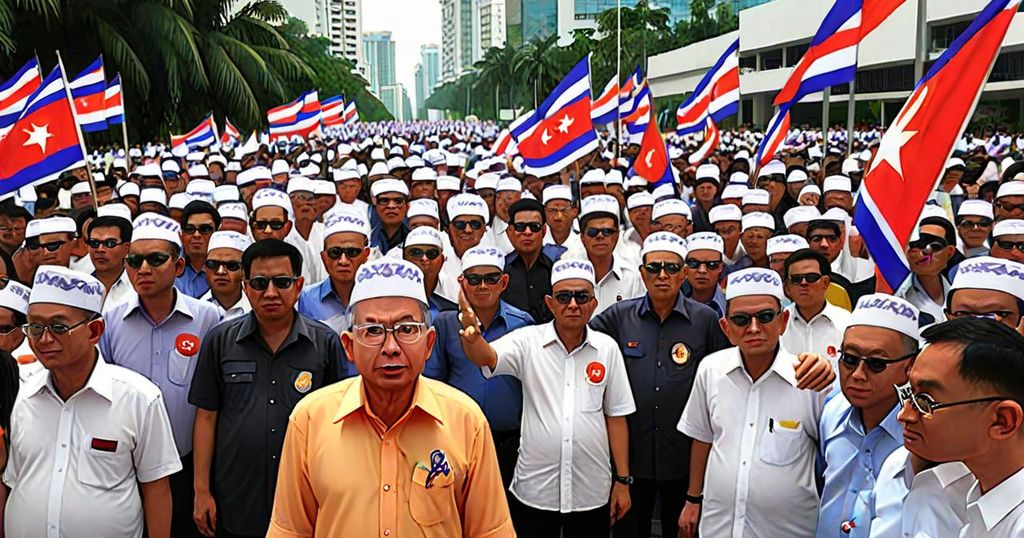In a recent announcement, the Malaysian United Democratic Alliance (MUDA), a youth-oriented political party, has declared its decision to withdraw from Anwar Ibrahim’s ruling coalition in response to the dismissal of corruption charges against Deputy Prime Minister Ahmad Zahid Hamidi. This move by MUDA comes after the Kuala Lumpur High Court dismissed a total of 47 graft charges against Zahid, leading to widespread discontent and allegations of government interference in the legal system.
In a formal statement, Syed Saddiq Syed Abdul Rahman, the leader of MUDA, expressed strong opposition to the normalization of corruption in Malaysian politics. He emphasized the party’s commitment to upholding integrity and transparency in governance, stating that he “will never allow Malaysia to normalize corruption.” This decision highlights MUDA’s intention to align itself with the opposition as a “third force” in response to the controversial events surrounding the dropped charges.
The head of the ruling coalition, Anwar Ibrahim, has faced criticism and speculation regarding potential involvement in the court’s decision to clear charges against his deputy. Despite these allegations, the coalition managed to secure victories in recent by-elections in Johor state, indicating its resilience despite internal fracturing.
While MUDA’s departure from the ruling coalition may not pose an immediate threat to the coalition’s parliamentary majority, it raises concerns about its ability to facilitate crucial reforms and constitutional amendments. The party’s decision to align with the opposition reflects its stance on the preservation of legal institutions and the prevention of corruption normalization within the government.
The situation in Malaysia’s political landscape has been further complicated by the significant gains made by the conservative opposition bloc in recent state assembly elections. These developments underscore the growing influence of opposition parties and the shifting dynamics within the country’s political sphere.
Amid these political shifts, Anwar Ibrahim’s governing alliance faces challenges to its authority and influence as it navigates the aftermath of the dropped charges against Deputy Prime Minister Ahmad Zahid Hamidi. These events have reignited debates about the prevalence of corruption and its effects on Malaysia’s democratic processes.
It is evident that MUDA’s decision to withdraw from the ruling coalition reflects broader discontent and disillusionment with the current state of Malaysian politics. As the country grapples with these internal political tensions, the future of governance and leadership remains uncertain, with implications for widespread reforms and institutional integrity.
In conclusion, the departure of the Malaysian United Democratic Alliance (MUDA) from the ruling coalition has brought to light the growing discontent with corruption and its implications for the country’s political landscape. This decision reflects a broader trend of disillusionment with existing governance and highlights the complexities of Malaysia’s political dynamics in the face of significant challenges and opposition influence.

Leave a Reply